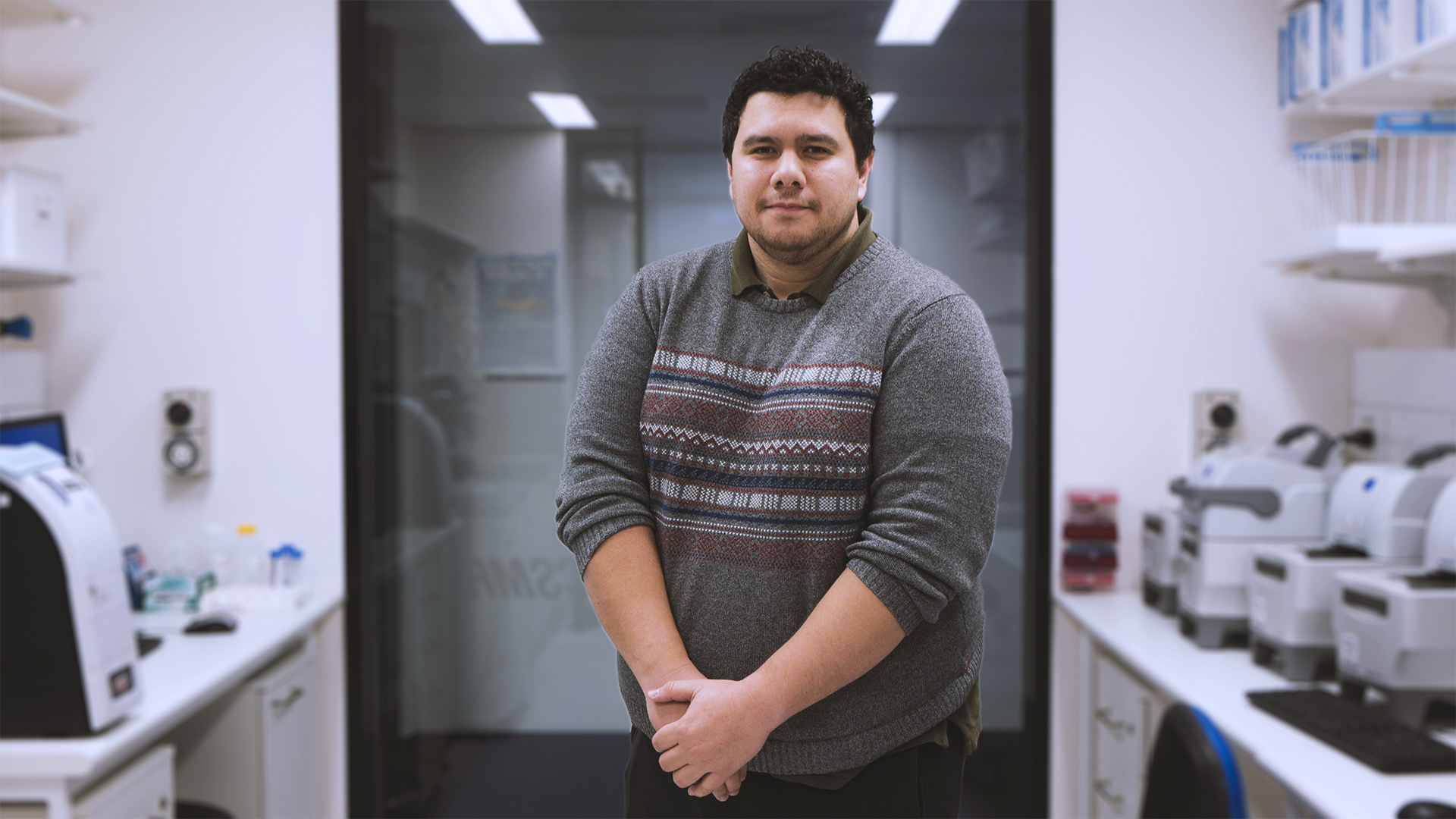New role in cancer uncovered for pathogen sensor

Dr Daniel Enosi Tuipulotu is trying to tackle Australia’s second deadliest cancer by tapping into resources in the second most complex biological system in humans.
His research project, “Innate immune sensing in the development of colorectal cancer”, has yielded refreshing results in cancer biology and has recently been awarded the 2022 GESA Mostyn Family Grant by the Gastroenterological Society of Australia (GESA).
But when Dr Enosi Tuipulotu first entered the realm of biology, his interest was not in cancer.
“My passion for biology grew over time with a particular interest in infectious disease,” he said, “It has always amazed me how such tiny organisms can cause devastating disease.”
While colorectal cancer is not contagious like a typical infectious disease such as COVID-19, they both link closely to our immune system, the intricate system considered by many as the most complicated part of the human body after the brain.
When studying a crucial group of proteins in the immune system, or more specifically, the innate half of it, Dr Enosi Tuipulotu and his colleagues at the John Curtin School of Medical Research (JCSMR) found something unanticipated.
“Innate immunity is the first line of defence against microbial infection,” explained Dr Enosi Tuipulotu, a Postdoctoral Fellow at the Innate Immunity and Inflammasomes Lab. “A key part of innate immunity is a specific group of proteins known as ‘inflammasome sensors’, which trigger inflammation and cell death.”
“However, we have identified that an inflammasome sensor also has a novel function in preventing the development of colorectal cancer.”
Previously, this specific inflammasome sensor was shown to play a role in recognising invading viruses and helping restrict viral infection. However, its effect on colorectal cancer has not yet been reported.
This finding challenges the current paradigm as it reveals that sensors of pathogens have novel roles in cancer development.
“Our results have therefore expanded the importance of this immune sensor in the regulation of health and disease,” said Dr Enosi Tuipulotu.
Moving forward, the researchers look to determine the precise molecular mechanisms underlying the sensor’s role in attenuating colorectal cancer development.
“I am incredibly grateful to the Mostyn Family and GESA for their support of this project,” Dr Enosi Tuipulotu said.
The $30,000 grant will support the team’s further exploration of how the inflammasome sensor works in animal cancer models.
In the long term, findings from this project may shed light on the development of new methods to screen, treat, and prevent colorectal cancer.
“Targeting this inflammasome sensor or signalling pathways linked to its protection against colorectal cancer is critical to developing new targeted and efficacious therapies to help save patient lives,” said Dr Enosi Tuipulotu.
“The dream-come-true moment will be when our fundamental basic research discoveries can have real-world applications that provide lasting and impactful benefits to humans and society.”
Dr Enosi Tuipulotu completed his PhD in virology at UNSW in 2018 and moved to the ANU in 2019 to work at the intersection of innate immunity and colorectal cancer.
Looking back, the journey that connected everything together through immunology is “incredibly fulfilling” to him.
“I feel fortunate to have the ability to work with incredibly talented people to answer fundamental biological questions, to do something different each day and to be constantly learning something new – it never gets boring as a scientist,” he remarked.
